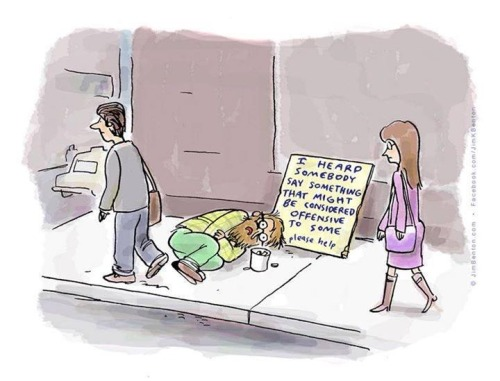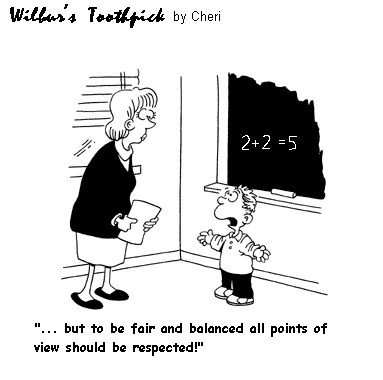‘Safe spaces’ will create graduates unwilling to tolerate differing opinions—a crisis for a free society.
By Michael Bloomberg and Charles Koch
 During college commencement season, it is traditional for speakers to offer words of advice to the graduating class. But this year the two of us—who don’t see eye to eye on every issue—believe that the most urgent advice we can offer is actually to college presidents, boards, administrators and faculty.
During college commencement season, it is traditional for speakers to offer words of advice to the graduating class. But this year the two of us—who don’t see eye to eye on every issue—believe that the most urgent advice we can offer is actually to college presidents, boards, administrators and faculty.
Our advice is this: Stop stifling free speech and coddling intolerance for controversial ideas, which are crucial to a college education—as well as to human happiness and progress.
Across America, college campuses are increasingly sanctioning so-called “safe spaces,” “speech codes,” “trigger warnings,” “microaggressions” and the withdrawal of invitations to controversial speakers. By doing so, colleges are creating a climate of intellectual conformity that discourages open inquiry, debate and true learning. Students and professors who dare challenge this climate, or who accidentally run afoul of it, can face derision, contempt, ostracism—and sometimes even official sanctions.
The examples are legion. The University of California considers statements such as “America is the land of opportunity” and “everyone can succeed in this society, if they work hard enough” to be microaggressions that faculty should avoid. The roll of disinvited campus speakers in recent years continues to grow, with the Foundation for Individual Rights in Education identifying 18 attempts to intimidate speakers so far this year, 11 of which have been successful. The list includes former Secretary of State Madeleine Albright, who is scheduled to give the commencement address at Scripps College this weekend. Student protests have vilified her as a “genocide enabler” and 28 professors have signed a letter stating they will refuse to attend.
Colleges are increasingly shielding students from any idea that could cause discomfort or offense. Yet without the freedom to offend, freedom of expression, as author Salman Rushdie once observed, “ceases to exist.” And as Frederick Douglass said in 1860: “To suppress free speech is a double wrong. It violates the rights of the hearer as well as those of the speaker.”
When a professor last year decided to write online about the trend toward intolerance on campuses, he did so under a pseudonym out of fear of a backlash. “The student-teacher dynamic,” he wrote, “has been reenvisioned along a line that’s simultaneously consumerist and hyper-protective, giving each and every student the ability to claim Grievous Harm in nearly any circumstance, after any affront.”
We believe that this new dynamic, which is doing a terrible disservice to students, threatens not only the future of higher education, but also the very fabric of a free and democratic society. The purpose of a college education isn’t to reaffirm students’ beliefs, it is to challenge, expand and refine them—and to send students into the world with minds that are open and questioning, not closed and self-righteous. This helps young people discover their talents and prepare them for citizenship in a diverse, pluralistic democratic society. American society is not always a comfortable place to be; the college campus shouldn’t be, either.
Education is also supposed to give students the tools they need to contribute to human progress. Through open inquiry and a respectful exchange of ideas, students can discover new ways to help others improve their lives.
The importance of such inquiry is obvious in science. Thanks to the freedom to make and test hypotheses, we have discovered that the Earth is round, how gravity works, the theory of relativity, and many other monumental scientific achievements. The ability to challenge the status quo leads to unimaginable innovations, advances in material well-being and deeper understandings of the natural world. But this principle doesn’t just apply to biology, chemistry, physics and other scientific fields.
Whether in economics, morality, politics or any other realm of study, progress has always depended upon human beings having the courage to challenge prevailing traditions and beliefs. Many ideas that the majority of Americans now hold dear—including that all people should have equal rights, women deserve the right to vote, and gays and lesbians should be free to marry whom they choose—were once unpopular minority views that many found offensive. They are now widely accepted because people were free to engage in a robust dialogue with their fellow citizens.
We fear that such dialogue is now disappearing on college campuses. As it fades, it will make material and social progress that much harder to achieve. It will also create graduates who are unwilling to tolerate differing opinions—a crisis for a free society. An unwillingness to listen to those with differing opinions is already a serious problem in America’s civic discourse. Unless colleges reverse course, that problem will worsen in the years ahead, with profoundly negative consequences.
Administrators and faculty must do more to encourage a marketplace of ideas where individuals need not fear reprisal, harassment or intimidation for airing controversial opinions. These members of campus leadership would be wise to look at the University of Chicago’s Statement on Principles of Free Expression, which paraphrases the wise words of the university’s former president, Robert M. Hutchins: “without a vibrant commitment to free and open inquiry, a university ceases to be a university.”
The continued march of justice and progress depends on free speech, open minds and rational discourse. Colleges and universities—and those who hold their degrees—have helped lead the way for most of this nation’s history. The well-being of future generations of Americans depends on the preservation of that great legacy.
